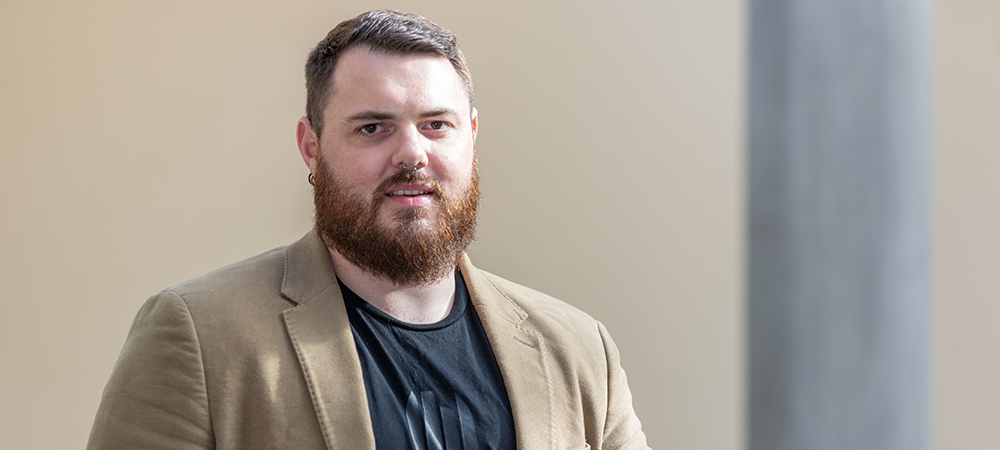The Regional Director Australia and New Zealand, SentinelOne says determining how best to lead a team post-Covid remains a ‘work in progress.’
What would you describe as your most memorable achievement?
Back in 2018, about 30 hospitals in regional Victoria were impacted by a ransomware attack and the company I was working for at the time was hired to handle the incident response. That entailed travelling around to all the different sites and working with the executive leaders and other cyber firms participating in the recovery effort.
One of the most vivid images I’ve retained from that period is of an older woman who’d been scheduled for orthopaedic surgery being turned away because the computers were down. She was absolutely devastated because she’d been waiting a long time and couldn’t really grasp what was going on. It was probably the first time in my career where I truly recognised what we do is super important. We subsequently received cyber-medals from the Victorian government for our efforts which was pretty nice!
What first made you think of a career in technology?
I’ve always been a bit of a gamer, as well as a fan of punk and rock music, and I think having those passions piqued my interest. I chose to study business, rather than ICT, at university so I don’t have tertiary level cyber-security qualifications but my motivation to learn as much as possible about how the technology works has stood me in good stead throughout my career.
What style of management philosophy do you employ with your current position?
I’m very much an empathetic style of leader. Because I’ve been in the position of the people I lead – and not that many years ago either.
I always try to put myself in their shoes. It’s important to me to seek everyone’s input as I feel that creates an environment where people are not only accountable but also really invested in the success of the enterprise. You don’t get that unless people feel their leader truly cares about them and their career development and growth.
What do you think is the current hot technology talking point?
Artificial Intelligence is definitely number one right now, particularly since the emergence of ChatGPT.
Go to any cyber vendor right now and you’ll find they’re developing some form of generative AI capability to support their offering.
How do you deal with stress and unwind outside the office?
I do cross fit, swim and generally try to keep as fit as possible. My other outlet is music: I really like going to gigs and shows.
And travelling. Being part of the global leadership function at SentinelOne means I clock up a lot of air miles for work, mostly travelling to the US and up through Asia.
Whenever possible, I try to tack on a couple of rec days at the end, to go skiing or diving – anything in nature that takes me away from the computer is good.
If you could go back and change one career decision, what would it be?
I don’t think I would. You always have goals and aspirations and things you want to do in your life and I’ve been very lucky and privileged to have reached certain milestones in my career much quicker than I was anticipating.
Every decision you make obviously has the potential to help or hinder your progression but living with regrets is a futile exercise. I try to be grateful for the opportunities I’ve been given and focus on being present in the moment.
What do you currently identify as the major areas of investment in your industry?
AI and automation are massive at the moment. That’s largely due to economic pressures – if you can utilise them to scale then your margins are going to improve.
Then there’s cloud…it’s been big for a while but there are still a lot of organisations, particularly in government, operating on-premises infrastructure and their migration to cloud or hybrid cloud models is accelerating.
And, of course, cyber-security.
What are the region specific challenges when implementing new technologies in APAC?
The localisation of language is a biggie. APAC is the most diverse region in the world, with dozens of countries and multiple mother tongues, so building a product with an English interface will only serve a certain percentage of the market.
Cultural approaches to doing business vary wildly too and being able to adapt to those different mentalities and sensibilities is vital.
What changes to your job role have you seen in the last year and how do you see these developing in the next 12 months?
Determining how best to lead a team post-Covid remains a work in progress.
As a leader, I’ve become much more conscious of the welfare of ‘my’ people. You need to think about whether staff who now work from home all the time are maintaining some separation between work and family life, for example, or if they’re getting enough physical interaction. It will be interesting to see how the continued adoption of AI impacts people’s productivity and their ability to work more flexibly.
What advice would you offer to someone aspiring to obtain a C level position in your industry?
Always hire people who are smarter than you or who have skills you lack. A lot of leaders fall down because they’re afraid of being challenged or outsmarted but, at the end of the day, your job is to get the most out of people for the good of the business.
Landing a leadership role at a young age – I was only 26 when I was first tapped – forced me to adopt this mentality. A lot of the people in my team were much older than me and it would have been impossible for me to function effectively if I’d felt like I had to know as much as they did about every aspect of the business.
Click below to share this article

